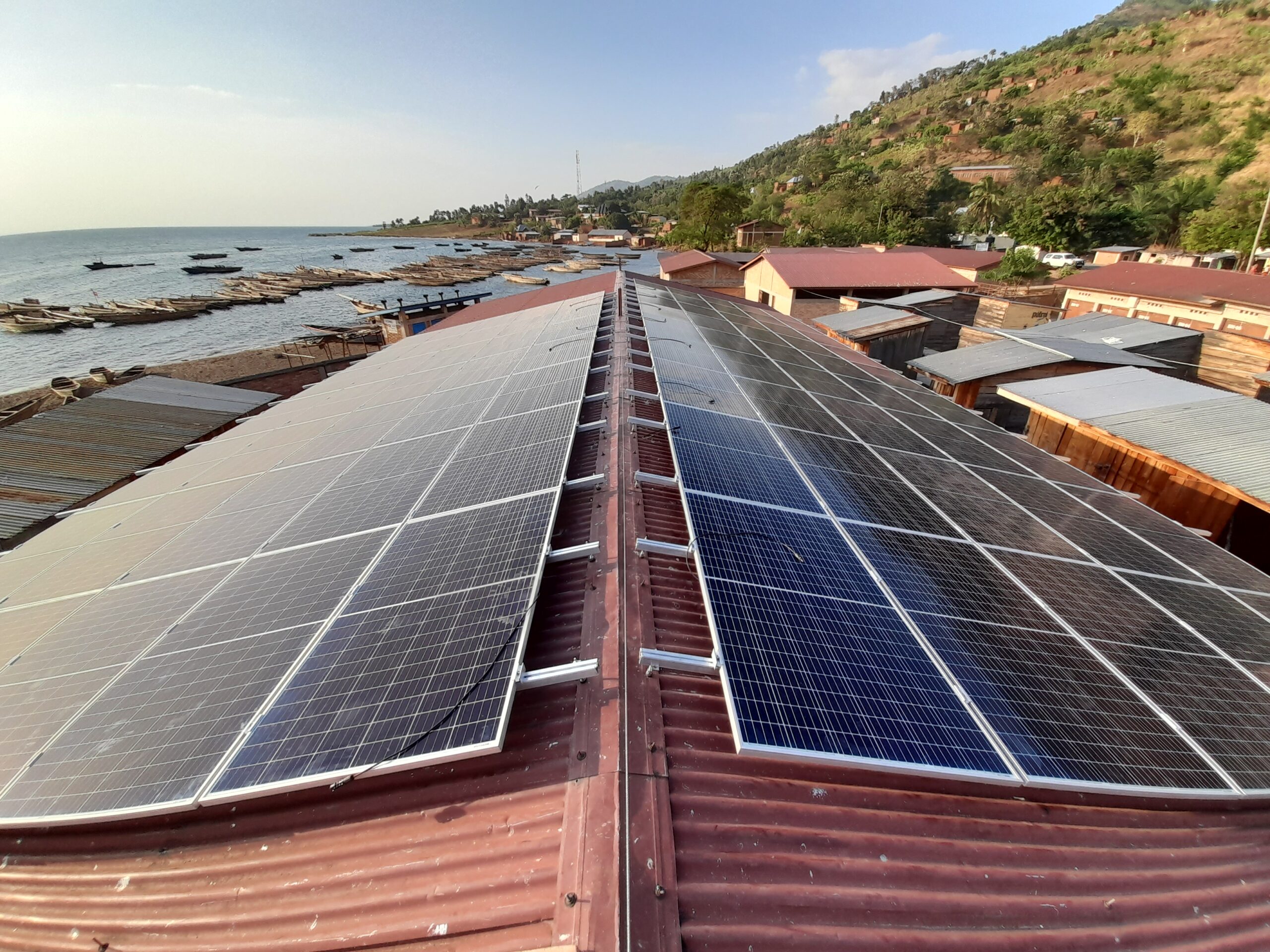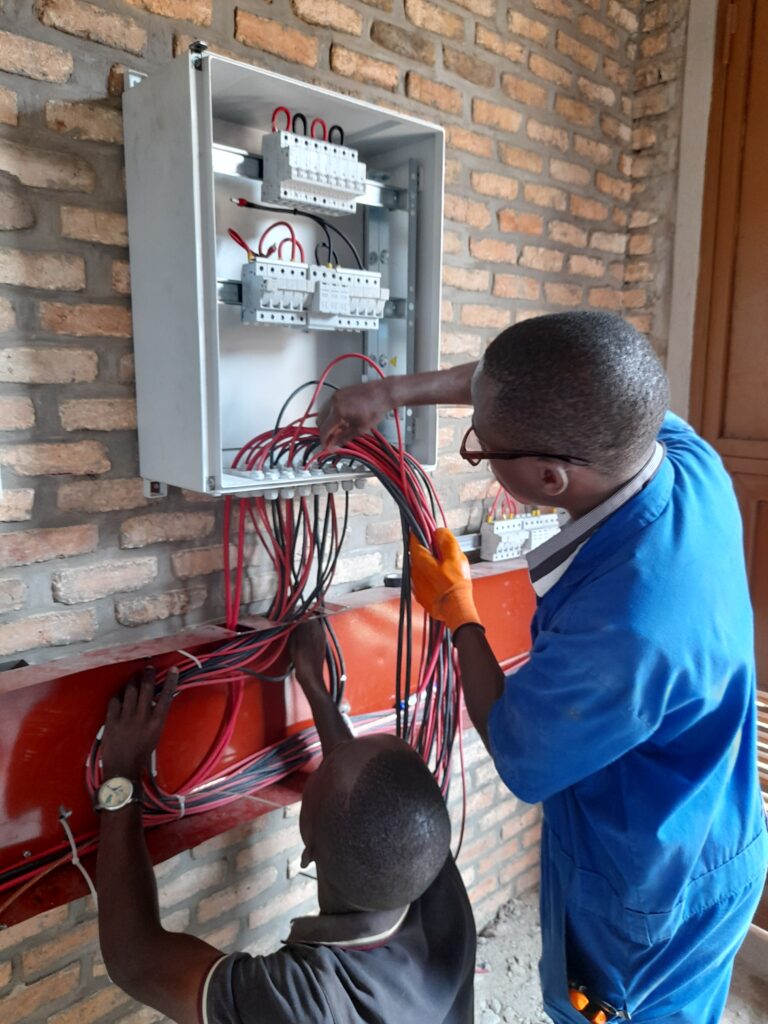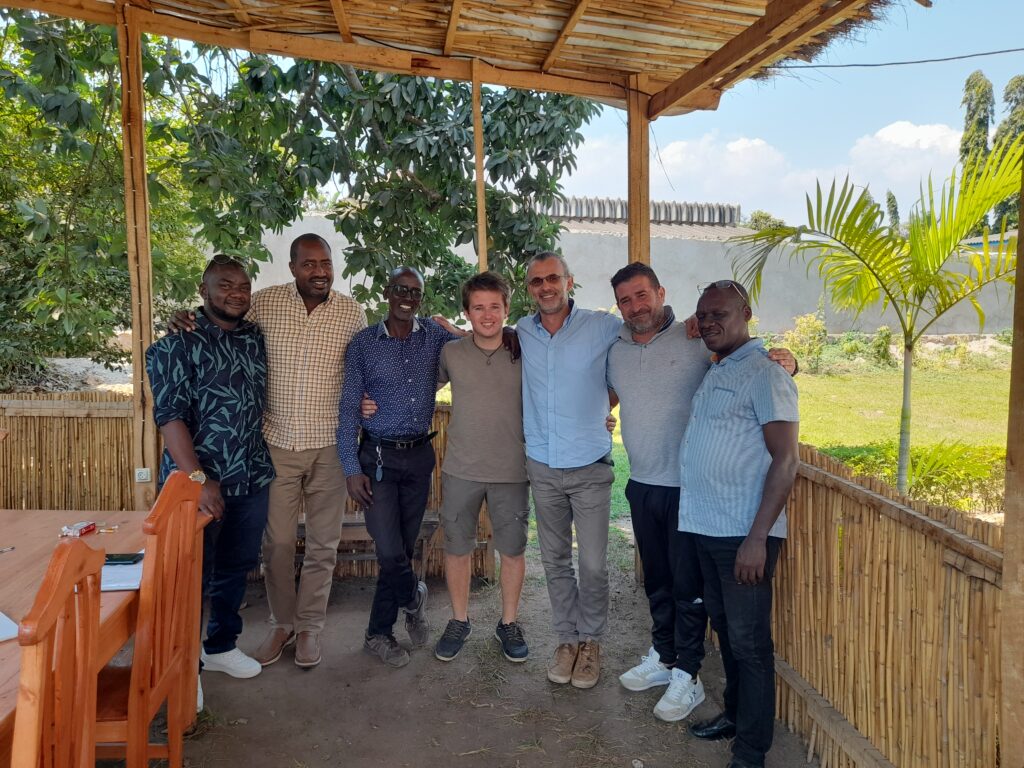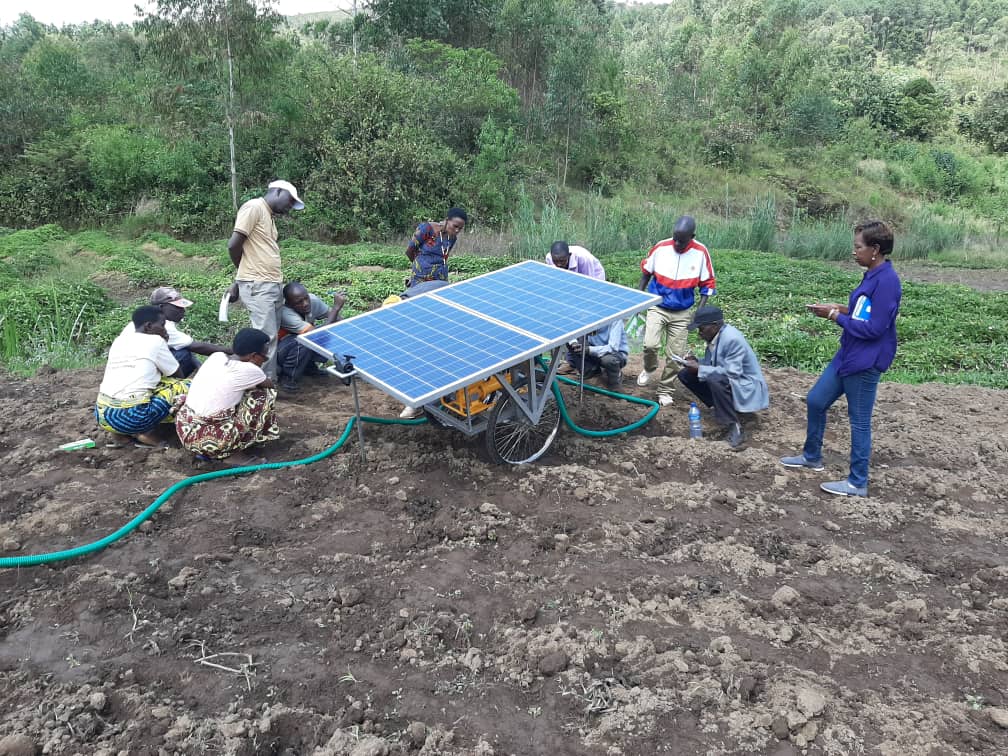Da qualche mese, nella sua piccola boutique all’interno del mercato di Gitaza, in Burundi, Laurance ha installato due frigoriferi e ha cominciato a vendere anche gelati. Il suo spirito di iniziativa ha portato frutti, il suo reddito è cresciuto, e questo è stato reso possibile da un generale miglioramento delle condizioni di vita. Come Laurance, si sono dati da fare anche gli altri 121 commercianti di questo mercato situato sulle rive del lago Tanganica, una trentina di chilometri a sud di Bujumbura.
La svolta è arrivata grazie all’arrivo della corrente elettrica nell’ambito di un progetto finanziato dall’Agenzia Italiana per la Cooperazione allo Sviluppo (Aics) e condotto sul campo dall’Istituto per la cooperazione universitaria (Icu), un’organizzazione non governativa italiana.
L’accesso all’energia ha trasformato in breve tempo – il progetto è tuttora in corso – la vita di questa comunità di pescatori che si trova lungo la strada che dal Burundi arriva in Tanzania. “L’obiettivo generale è quello di migliorare lo sviluppo socio-economico di quest’area attraverso il ricorso all’energia rinnovabile” racconta a Oltremare Martino Destefanis, piemontese da 20 anni in Africa e oggi coordinatore del progetto per Icu. “In questo villaggio di pescatori oggi è possibile conservare il pesce, ma anche altri prodotti che qui arrivano e che prima sarebbero andati a male nel giro di poche ore o giorni. Aver portato l’energia ha consentito un miglioramento delle condizioni di vita e di lavoro che va oltre i diretti beneficiari e che al termine del progetto riguarderà almeno 100 mila persone”.
Il progetto condotto in Burundi (“Accesso alle energie rinnovabili nelle zone off-grid del Burundi come volano di sviluppo socio-economico”) è stato un gioco di squadra che ha messo insieme attori burundesi e italiani: oltre ad Aics e Icu, l’iniziativa ha visto il contributo di un’altra Ong italiana, la Lvia, della Great Lakes Initiatives for Communities Empowerment (Glice), dell’Agenzia burundese per l’elettrificazione rurale (Aber). La realizzazione tecnica è stata invece affidata a Esi S.p.A., un’impresa italiana quotata in Borsa che realizza grandi impianti in giro per l’Europa ma che ha anche un animo molto africano avendo operato in diversi Paesi del continente a sostegno di progetti di cooperazione. Proprio per l’elettrificazione del mercato di Gitaza, portata avanti in collaborazione con Icu ed Aics, ad Esi è stato conferito lo scorso febbraio il Premio Impresa Ambiente nella categoria “Miglior cooperazione internazionale per lo sviluppo sostenibile”.
“Un riconoscimento che premia il nostro impegno in Africa dove abbiamo lavorato in vari contesti realizzando anche gli impianti fotovoltaici dell’ospedale di Wolisso in Etiopia per il Cuamm e l’ospedale pediatrico di Entebbe in Uganda per Emergency” dice a Oltremare Giulio Porzi, project manager di Esi, raccontando di nuovi progetti in corso in Mozambico. “Quello che abbiamo visto e che è risultato ancora una volta evidente con il progetto realizzato in Burundi, è l’impatto che si riesce ad avere portando la corrente elettrica grazie a mini-reti realizzate lì dove non arrivano le dorsali di distribuzione nazionale e privilegiando come primo approccio le realtà commerciali e produttive”. In altre parole, se portare la corrente elettrica in un’abitazione implica dei benefici sì ma limitati a quella dimensione, portare la corrente elettrica nelle aree produttive e commerciali consente di avere con immediatezza una crescita economica e sociale molto più incisiva, di cui poi godono comunque tutti. I numeri danno ragione a questo approccio. Benché il progetto sia ancora in corso (è stato avviato a fine 2019 e si concluderà agli inizi del 2023), si è già sulla strada giusta per centrare obiettivi importanti: l’incremento del reddito annuale medio pro-capite dei beneficiari nelle aree target aumenterà del 12%; la percentuale di accesso all’energia della popolazione passerà dallo 0% al 25%; la percentuale di fonti rinnovabili sul totale di energia consumata (in precedenza si usavano soprattutto generatori diesel) passerà dallo 0% al 75%; ci sarà un miglioramento dei servizi sanitari; ci saranno 320 persone formate come tecnici o piccoli imprenditori del solare; ci sarà la possibilità di svolgere lavori prima non praticabili.
“Adesso stiamo lavorando oltre che sulla formazione e sulla sensibilizzazione anche sulla fornitura di corrente elettrica a otto centri di salute e altrettante scuole rurali a beneficio di una popolazione di migliaia di persone” aggiunge ancora Destefanis sottolineando come quello di Gitaza può essere considerato un progetto pilota di impatto e replicabile in molti altri contesti. Dove l’uso dei pannelli solari unito ad altre innovazioni, come i contatori smart e i sistemi di pagamento via telefonino della corrente consumata (l’accesso all’energia non è gratuito ed è gestito da Aber), mostrano chiaramente le opportunità di sviluppo oggi possibili grazie alla tecnologia.Gitaza è quindi l’esempio di come si sta muovendo l’Africa e di quanto contino le rinnovabili per lo sviluppo del continente. La transizione energetica che tutto il mondo sta abbracciando per passare da un’economia fondata sulle fonti fossili a un’economia fondata sulle rinnovabili, nel continente è tra le opzioni principali ed è anche un obbligo. Un obbligo che però nasce dai danni all’ambiente che altri hanno fatto. Secondo dati dell’Africa Energy Outlook, ad oggi l’Africa conta per il 2% delle emissioni di carbonio a livello globale e questa soglia arriverà soltanto al 4,3% da qui al 2040. L’Africa si merita tutto il sostegno internazionale possibile per questo motivo e anche perché, egoisticamente, gli eventuali errori di un continente destinato ad un aumento vertiginoso della sua popolazione ricadrebbero su tutti.
A Gitaza, in questo pezzo d’Africa accarezzato dalle acque del Tanganica, i vantaggi di un accesso pulito all’energia sono già sotto gli occhi di tutti. Per alimentare le batterie delle barche non c’è più bisogno di usare generatori diesel, il pesce portato a riva dai pescatori non deve essere più venduto entro poche ore perché adesso si può conservare, e lo stesso vale per la carne e per altri alimenti deperibili. E finalmente c’è anche una sala cinema: “Non un vero e proprio cinema – conclude Giulio Porzi di Esi – ma il monitor di un computer collegato a due casse. Perché sognare è bello a qualunque latitudine”.



